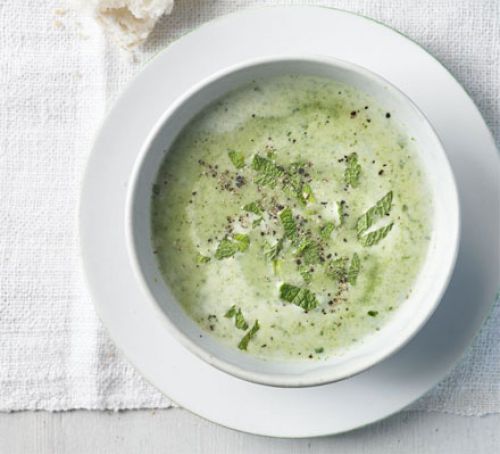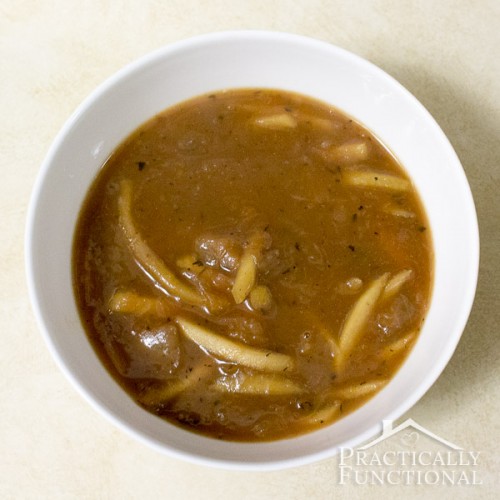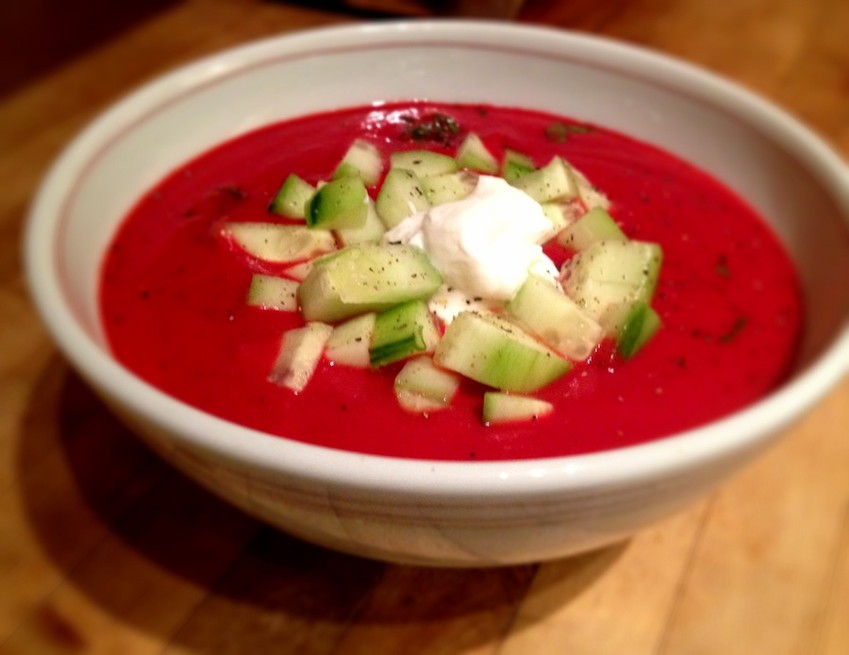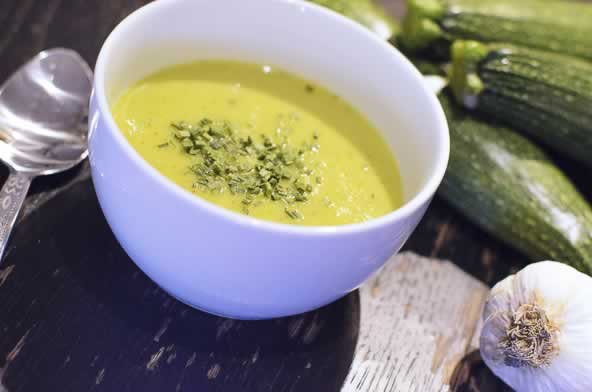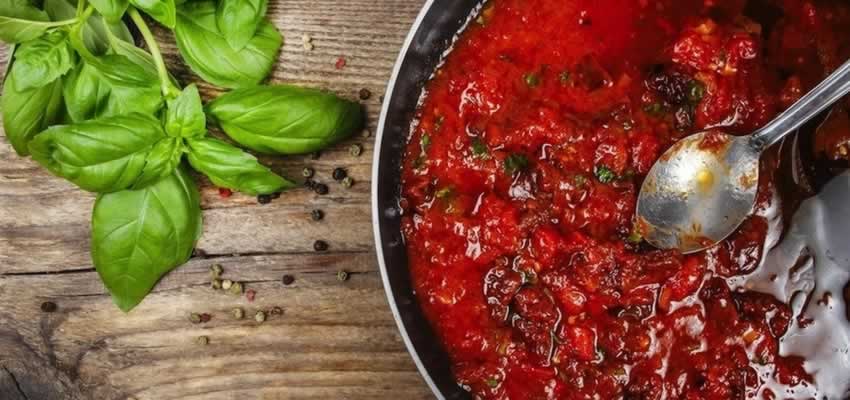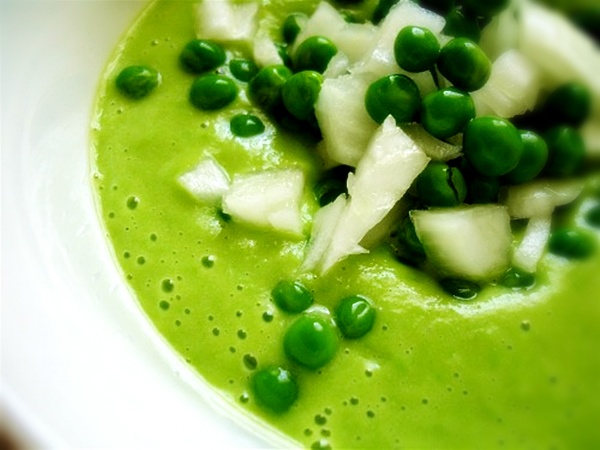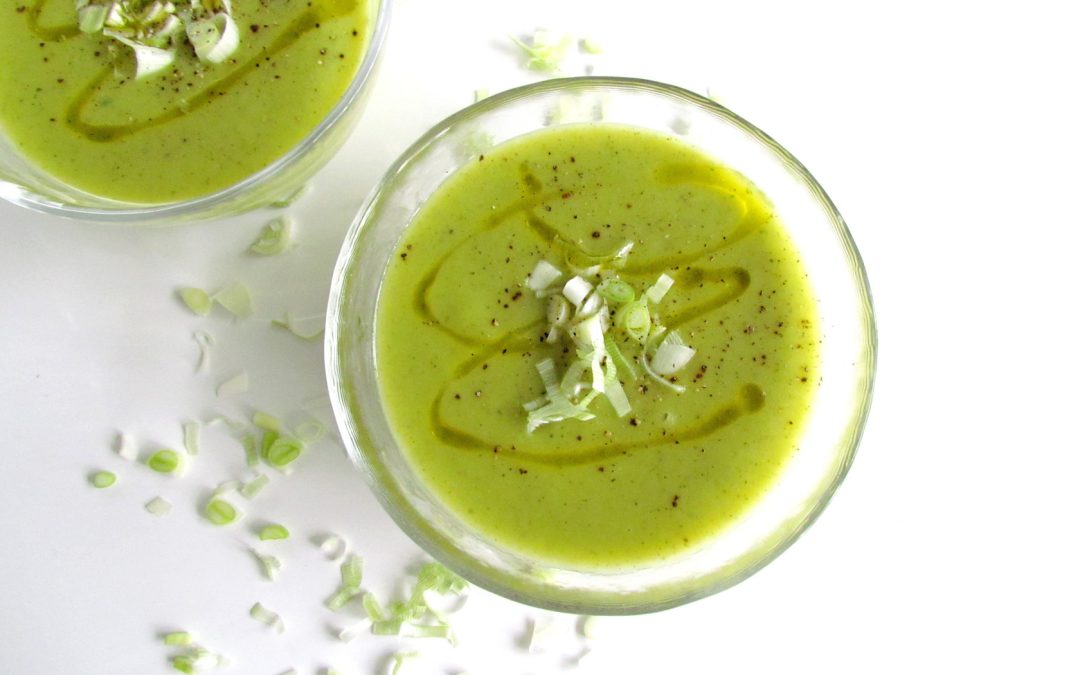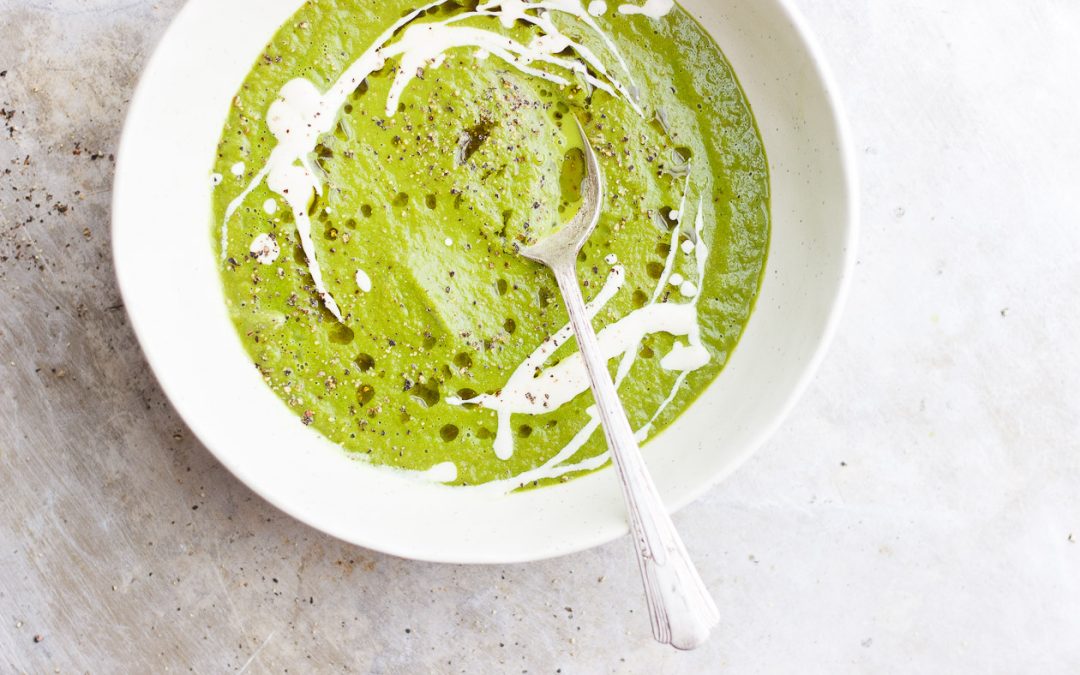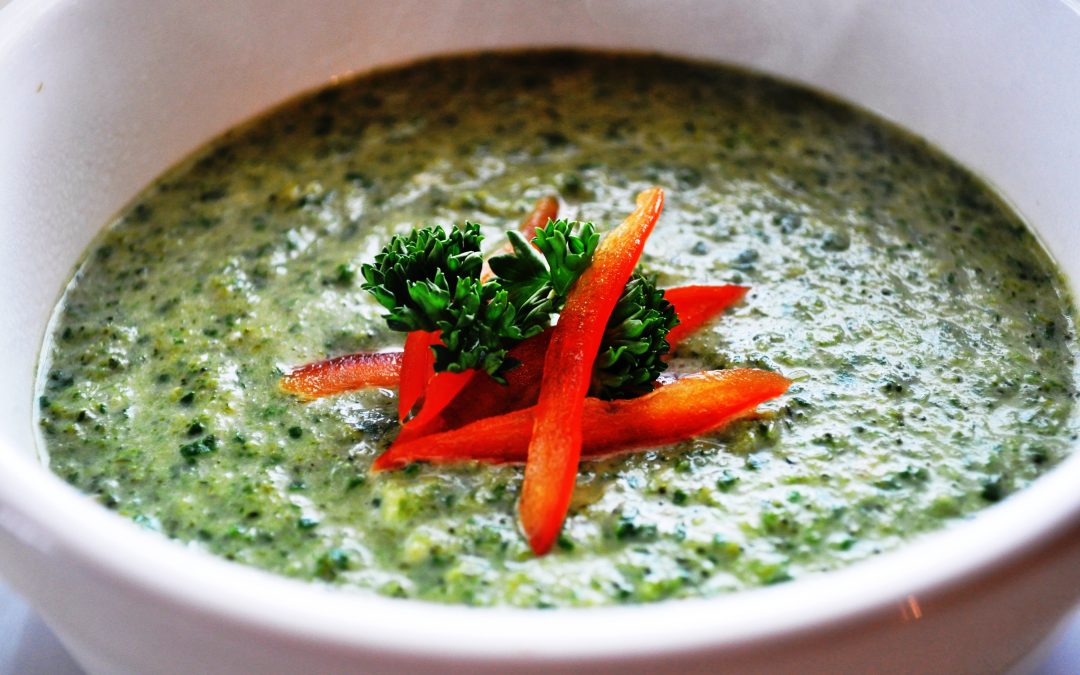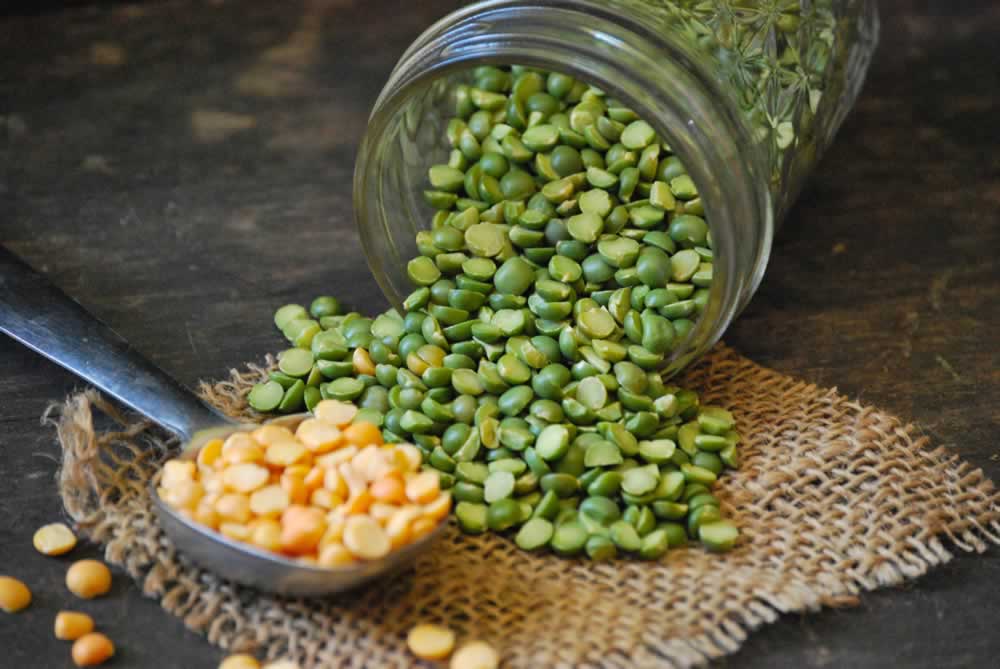| NOTES ON OUR JUICES, SMOOTHIES & SOUPS (raw and cooked) |
- Be sure to wash, rinse and/or soak non-organic fruit and vegetables thoroughly in non-chlorinated water that contains a spoonful of 35% Food Grade hydrogen peroxide, to remove pesticides and chemicals.
- If 35% FG HP is not available, visit our “Eat To Live” page – Cleaning Produce – for instructions on how to use vinegar and bicarbonate of soda.
- As a serving suggestion, you may add cold-pressed olive oil, freshly-ground hemp or flaxseeds to your soup when serving.
- Sprinkle fresh sprouts on top of the soup, or freshly chopped parsley or corriander.
- If making soup in bulk and it is not being eaten immediately, be sure to freeze correctly, mark and date the packaging.
- When defrosting frozen soup DO NOT use the microwave.
Cook Healing Soups to Boost Immunity and Rest Your Digestion
Soups are warm, soft, supportive, hydrating, and generally easy to digest. Whenever your body is run down by stress, emotions, or ailments, soups are the fall-back food. Soups provide restoration through easily digested nutrients. If your digestion is compromised, soups are essential.
Immunity & Resting the Digestive Tract
A good home-made soup should not have any high-tech chemicals, compounds, or derivatives and by cooking “clean food”, you are providing nutrient-dense, functional foods. Soup pulls less blood to the GI tract while providing balanced nutrition, which means there is more blood in circulation available to fight disease. The metabolic process of digestion saps a huge amount of energy – up to 60% of the body’s daily energy in fact.
Releasing the power of that 60% is the key to immune-boosting soup. Resting when you are sick means resting your muscles (on the couch) and resting your digestive tract with simple, nourishing, easy-to-digest food choices. For some additional soup ideas, follow this link to our Eat To Live – Soups & Broths. If you are ill and/or battling with digestion issues or have a chronic health imbalance, it is easy to make your favourite soup and then blitz it in a liquidiser to help aid digestion and assimilation.
About Making Soups
It does not take rocket science to make a healthy, nutrient-dense soup. Soups should be served tepid, around 101.5° F [38.6°C], the temperature of the stomach. If your digestion is compromised, avoid cream soups (soups with almond or coconut milk added), soups with wheat-based noodles, tomato based soups, and soups with chili peppers.
Basic Soup Recipe (for 6 servings)
Sometimes when health or digestion is compromised or one is nauseous, keeping very rich soups and foods “down” is difficult. This basic soup will provide you with solid nutrients. Keep it simple! As your body changes and you are more able to keep foods down, you can then begin experimenting with some of our supportive soups or visit the Eat To Live: Soups & Broths section on this website
- 2 Tbsp oil
- 3/4 tsp himalayan salt in a large pot
- Choose one to three vegetables, one to two cups of each vegetable
- Add optional ingredients below
- Add water to twice the height of vegetables
- Bring to a boil, reduce heat, cover, and simmer until veggies are soft.
| DBM COMMENT |
Soups are the “go-to” foods on many of the DBM Health Programs. They are a valuable source of nutrients and we often liquidize the soups to allow easier digestion for those with compromised health or guts whilst we deal with restoring balance.
The purpose of these pages is not to suggest that you select ONLY these foods to supplement your deficiency, but to show you that if you are eating a healthy balanced diet, eating from the rainbow, and excluding toxic foods, restore your gut-health, then your body will automatically receive the nutrients it needs. Whilst the list of foods that we recommend you exclude from your diet is currently on our Daily Nutrition page – it is vital that in order to gain good health, you begin this exclusion process as soon as possible.
The Whole Food Plant based plate gives a good indication of the The Four Food Groups. For a balanced diet follow the recommended daily servings as indicated. Use this as a guide to get you started whilst eating the foods you enjoy, until you are familiar and comfortable with the quantities and volumes you need to sustain a healthy lifestyle.
The DBM Food Pyramid gives a good indication of types and volumes foods that we recommend to all DBM Patients / Clients. Please remember, you may only eat the goat cheese and other goat products as indicated on that pyramid, on the advice of your DBM Physician/Practitioner.
Ensure that when selecting fruits and vegetables you Eat from The Rainbow. Whole grains and legumes form an important part of this natural, balanced lifestyle.
By eating whole foods, a wide variety of fruit and veggies (eating from the rainbow) you will get all the nutrients your body needs. To show you how wonderful fruits and veggies are – look at the graphics on the Eat From The Rainbow page and you will clearly see that a wide range of fruit and veggies will more than provide for your needs.
Note
Please be aware that external lists or websites we link to might include fish, meat, soya, or other foods that are restricted on all DBM programs. The links are retained as a requirement of copyright. The publishing of this list is intended as educational and certain foods that this article might be listed or linked to do not support DBMs philosophies or practices.
At all times, ensure that the foods you select are permitted by your DBM Physician for your health imbalance. Select only NON-GMO sources that are organic and/or sundried.
Disclaimer
We are obliged to notify you that the information on this website is solely for informational purposes. IT IS NOT INTENDED TO PROVIDE MEDICAL ADVICE. Neither the Editors of Doctors Across Borders NPO t/as Doctors Beyond Medicine, the author(s) nor publisher(s) take responsibility for any possible consequences from any treatment, procedure, exercise, dietary modification, action or application of medication which results from reading or following the information contained in this information. The publication of this information does not constitute the practice of medicine, and this information does not replace the advice of your physician or other health care provider. Before undertaking any course of treatment, the reader must seek the advice of their physician or other health care provider.



